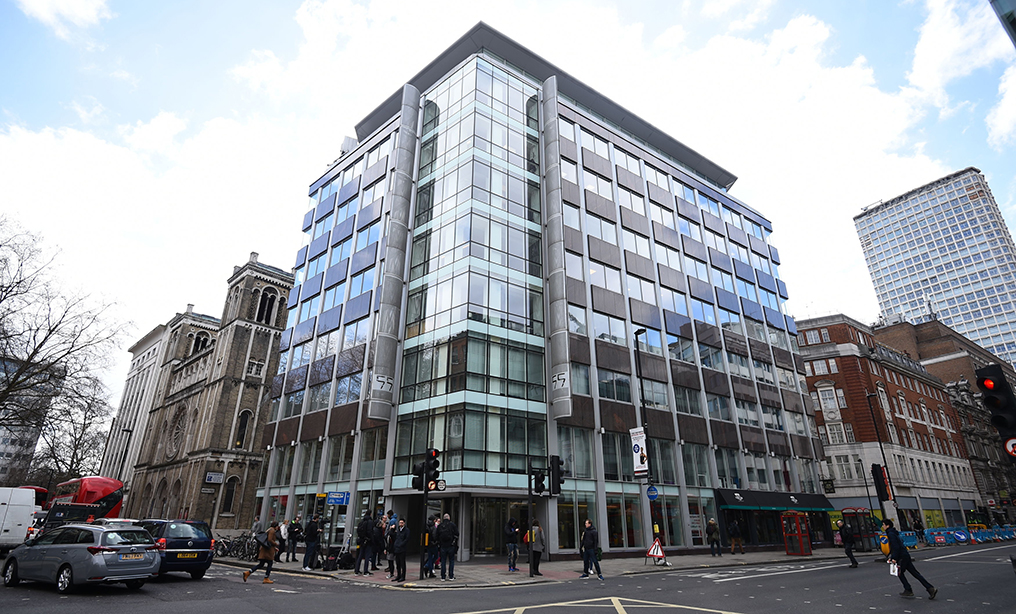What to Expect When Cambridge Analytica Files for Bankruptcy
Cambridge Analytica's decision to shutter its business amid the unfolding controversy surrounding its use of user data obtained from Facebook Inc. could mean that bankruptcy proceedings are soon headed for a Manhattan federal courtroom.
May 04, 2018 at 05:32 PM
4 minute read

Cambridge Analytica's decision to shutter its business amid the unfolding controversy surrounding its use of user data obtained from Facebook Inc. could mean that bankruptcy proceedings are soon headed for a Manhattan federal courtroom.
However, the case could bring with it a string of headaches for creditors of the London-based consulting firm, as they try to recover against the company's estate, two University of Chicago Law School bankruptcy professors warned this week.
Cambridge Analytica and its parent SCL Elections Ltd. announced Wednesday that they had begun insolvency proceedings in the U.K. after being “vilified” for actions the companies said were above-board and common in the “political and commercial arenas.” Cambridge Analytica said parallel proceedings will “soon be commenced” in the U.S. Bankruptcy Court for the Southern District of New York.
The announcement followed weeks of allegations that Cambridge Analytica improperly obtained the private data of 87 million Facebook users to create sophisticated psychological and political profiles. Cambridge Analytica, which is largely funded by billionaire and GOP donor Robert Mercer, is said to have had tied with President Donald Trump's 2016 campaign.
Cambridge Analytica denied any wrongdoing related to the data breach.
The company has since been targeted—along with Facebook—in a series of lawsuits over the alleged misuse of data. But Cambridge Analytica's expected bankruptcy threatens to complicate those proceedings and raise a host of new issues, as well.
According to the two experts, the main task for a bankruptcy judge will be to determine the total amount of the company's assets and the value of the outstanding claims against it.
“The basic problem … is this may be a case where the denominator is very large and the numerator is very small,” said Douglas Baird, professor and former dean of the University of Chicago Law School. “You can't get blood from a stone.”
Cambridge Analytica, a Delaware limited liability company, is a private firm, and Baird cautioned that he had no knowledge of its finances. The firm would be required to submit information regarding its corporate structure and an assessment of its assets and liabilities when it files for bankruptcy.
Anthony Casey, also a bankruptcy expert at the University of Chicago Law School, said that he expected any pending cases against Cambridge Analytica to be stayed and the claims folded into the bankruptcy proceedings, where a judge would conduct a “mini-trial” to determine the value for pro rata distribution.
Facebook also faces the possibility of being dragged into the bankruptcy case, if the company is determined to be jointly and severally liable for the alleged wrongdoing, either under the tort law or any contract it may have had with Cambridge Analytica.
However, depending on Facebook's preference of forum, that may not be a bad option.
“They're going to have to litigate the issue in a court. They may have to litigate it in bankruptcy court,” Casey said, noting the U.S. District Court for the Southern District of New York's reputation as a “sophisticated” court. “They may prefer that to other courts,”
Cambridge Analytica's estate, for its part, may decide that it has claims against Facebook, which it could then pursue in a bid to increase the assets available for distribution. The estate could also potentially target the company's own directors, on the theory that they knew about the alleged wrongdoing or violated some duty they had to the company.
“It's claims going out and claims going in,” Casey said.
However, it is not clear whether there is any evidence to support either of those scenarios, the scholars said.
If the pool turns out to be too small for Cambridge Analytica's creditors to fully recover against the state, investors could sue the company's individual directors for breaches of duty to the company, or they could target SCL, Cambridge Analytica's parent company, in a long-shot bid to pierce the corporate veil.
As of Friday evening, Cambridge Analytica had not yet filed for bankruptcy in New York.
The U.K.'s Information Commissioner's Office, an independent regulatory body, said this week that it would continue investigating Cambridge Analytica and SCL, despite the companies' decision to wind down its affairs.
This content has been archived. It is available through our partners, LexisNexis® and Bloomberg Law.
To view this content, please continue to their sites.
Not a Lexis Subscriber?
Subscribe Now
Not a Bloomberg Law Subscriber?
Subscribe Now
NOT FOR REPRINT
© 2025 ALM Global, LLC, All Rights Reserved. Request academic re-use from www.copyright.com. All other uses, submit a request to [email protected]. For more information visit Asset & Logo Licensing.
You Might Like
View All


Law Firms Expand Scope of Immigration Expertise Amid Blitz of Trump Orders
6 minute readTrending Stories
- 1Law Firm Fails to Get Punitive Damages From Ex-Client
- 2Over 700 Residents Near 2023 Derailment Sue Norfolk for More Damages
- 3Decision of the Day: Judge Sanctions Attorney for 'Frivolously' Claiming All Nine Personal Injury Categories in Motor Vehicle Case
- 4Second Judge Blocks Trump Federal Funding Freeze
- 5Crypto Hacker’s $65 Million Scam Ends in Indictment
Who Got The Work
J. Brugh Lower of Gibbons has entered an appearance for industrial equipment supplier Devco Corporation in a pending trademark infringement lawsuit. The suit, accusing the defendant of selling knock-off Graco products, was filed Dec. 18 in New Jersey District Court by Rivkin Radler on behalf of Graco Inc. and Graco Minnesota. The case, assigned to U.S. District Judge Zahid N. Quraishi, is 3:24-cv-11294, Graco Inc. et al v. Devco Corporation.
Who Got The Work
Rebecca Maller-Stein and Kent A. Yalowitz of Arnold & Porter Kaye Scholer have entered their appearances for Hanaco Venture Capital and its executives, Lior Prosor and David Frankel, in a pending securities lawsuit. The action, filed on Dec. 24 in New York Southern District Court by Zell, Aron & Co. on behalf of Goldeneye Advisors, accuses the defendants of negligently and fraudulently managing the plaintiff's $1 million investment. The case, assigned to U.S. District Judge Vernon S. Broderick, is 1:24-cv-09918, Goldeneye Advisors, LLC v. Hanaco Venture Capital, Ltd. et al.
Who Got The Work
Attorneys from A&O Shearman has stepped in as defense counsel for Toronto-Dominion Bank and other defendants in a pending securities class action. The suit, filed Dec. 11 in New York Southern District Court by Bleichmar Fonti & Auld, accuses the defendants of concealing the bank's 'pervasive' deficiencies in regards to its compliance with the Bank Secrecy Act and the quality of its anti-money laundering controls. The case, assigned to U.S. District Judge Arun Subramanian, is 1:24-cv-09445, Gonzalez v. The Toronto-Dominion Bank et al.
Who Got The Work
Crown Castle International, a Pennsylvania company providing shared communications infrastructure, has turned to Luke D. Wolf of Gordon Rees Scully Mansukhani to fend off a pending breach-of-contract lawsuit. The court action, filed Nov. 25 in Michigan Eastern District Court by Hooper Hathaway PC on behalf of The Town Residences LLC, accuses Crown Castle of failing to transfer approximately $30,000 in utility payments from T-Mobile in breach of a roof-top lease and assignment agreement. The case, assigned to U.S. District Judge Susan K. Declercq, is 2:24-cv-13131, The Town Residences LLC v. T-Mobile US, Inc. et al.
Who Got The Work
Wilfred P. Coronato and Daniel M. Schwartz of McCarter & English have stepped in as defense counsel to Electrolux Home Products Inc. in a pending product liability lawsuit. The court action, filed Nov. 26 in New York Eastern District Court by Poulos Lopiccolo PC and Nagel Rice LLP on behalf of David Stern, alleges that the defendant's refrigerators’ drawers and shelving repeatedly break and fall apart within months after purchase. The case, assigned to U.S. District Judge Joan M. Azrack, is 2:24-cv-08204, Stern v. Electrolux Home Products, Inc.
Featured Firms
Law Offices of Gary Martin Hays & Associates, P.C.
(470) 294-1674
Law Offices of Mark E. Salomone
(857) 444-6468
Smith & Hassler
(713) 739-1250







